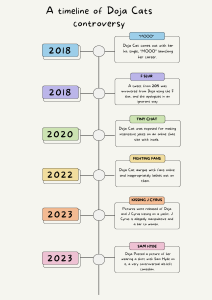Television’s effect on adolescent socialization
October 29, 2015
Television has a huge effect on not only adults, but children too. Researchers have reported that on average children watch 184 minutes of television daily. Many do not realize it, but television can affect children in multiple positive and negative ways. Socialization is defined as the process that teaches the norms, values, and other aspects of a culture to new group members.
According to Janet Mena-Gonzalez in The Media as an Influence on Socialization, “Television is the medium with the greatest socialization effect, surpassing all the other media by far in its influence on the young child. The very fact that television is not an interactive agent is greatly significant to the development of young children.” Children feel like they are interacting while they watch television, but they are actually not. Television may be entertaining to children, but it does not give them the social skills they require.
Social skills are a very important skill for one to possess. It’s defined as the skills one uses to interact and communicate with one another, verbally and non verbally. Social skills can be expressed by gestures, personal appearance and body language. “Since the average child watches three to four hours of television a day, the time left for playing with others and learning social skills is drastically reduced,” said Gonzalez-Mena. Children start learning basic social skills at the age of two and continue to learn them until the age of 12. At the age of two, a child’s social awareness is very limited, although they start to imitate adults and other toddlers. When a child reaches the age of 12, they learn to respect the opinions of other people and speak with confidence in front of a group. As one can see, social skills are very important for children to have.
Children can learn about the world and the way a society works. There are shows that are aimed specifically at children but others that are not meant for children to see. They can learn what language goes with specific settings but also can learn some language that one would rather they didn’t know. Parents can monitor what their child watches on television but many do not. “They can monitor the selection of programs, but some allow their children to watch whatever happens to be on. Some parents don’t consider how they can use television to teach decision making. Some children, especially those with a remote control in hand, flick through the channels periodically, randomly stopping at whatever catches their interest at the moment,” Gonzalez-Mena.
According to Minnow and LaMay, “By the time most Americans are eighteen years old, they will have spent 15,000 hours in front of a television set, about 4,000 hours more than they have spent in school and far more than they have spent talking to their teachers, their friends, or even their parents.” Today’s children have been exposed to far more television than any other generation. It is not news to researchers that those 15,000 hours of television contain not only harsh language, but also a good amount of images and stereotypes that can misportray their world.
Researchers have said that the hours one spends watching television peaks at ages 11 to 13 and slightly lessens as they get older. “Twelve-year-olds average about 28 hours per week of viewing, and 25% of twelve-year-olds watch 40 or more hours per week,” stated Minnow and LaMay. This is more time than children spend in school during the week. Once a child becomes a teenager, they likely watch television without adult supervision. This could become an issue because of all of the widespread networks that one is presented with. “The consequences are that youth are now exposed to a greater variety of material than ever before on TV, some of which is specifically targeted at them, and some of which was never intended for viewing by children,” according to Minnow and LaMay.
According to Dubown, Eric Huesmann and Dara Greenwood, “Children are eager to learn, have less real-world experience, and have less developed cognitive skills, making them ultimately more vulnerable to media messages.” This means that children will most likely believe everything that they see on television because they do not know any better.
As one can see, television is both beneficial and detrimental to a child. On one hand, they can learn a lot about how a society today works but also they can learn world issues and develop stereotypes.


















Cody • Mar 8, 2022 at 3:24 PM
Amazing article!!!
Gorethy • Dec 2, 2020 at 2:45 PM
Chloe brava? your article was helpful